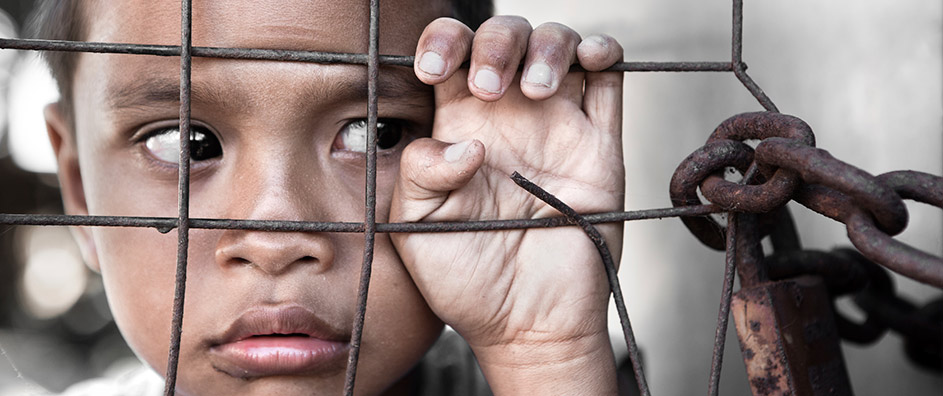The plight of marginalized children, particularly among immigrant populations, evokes a profound call for empathy and action within the Baha’i community. This urgency not only challenges societal norms but also serves as a poignant reflection of the core principles of Baha’i teachings. As we delve into the metaphorical and tangible dimensions of this issue, the need for a collective response becomes starkly evident. The title itself, “Suffer the Little Immigrant Children,” beckons us to engage in a critical discourse about our responsibilities toward the most vulnerable among us.
At the intersection of Baha’i teachings and the contemporary immigrant experience lies a metaphor that paints a vivid picture of humanity’s shared responsibility. Imagine a garden, rich and verdant, where each flower represents a child. Within this garden, the immigrant children often symbolize the delicate, yet resilient blooms that struggle to thrive amidst challenging conditions. These children, uprooted from their homes, are akin to flowers torn from fertile soil, needing the nurturing warmth of community support to flourish. This imagery compels us to consider our role as cultivators of compassion and advocates for justice.
Baha’i principles emphasize the oneness of humanity, a doctrine that is particularly relevant as we examine the plight of immigrant children. This oneness transcends borders and ethnicities; it convicts us to act not as passive observers but as engaged participants in rectifying injustices. Significant is the teaching that “ye are all the leaves of one tree, and the fruit of one branch.” This belief implies that neglecting one group adversely affects the entire garden of humanity. Thus, to advocate for these vulnerable children is to advocate for our collective integrity.
Furthermore, the concept of unity in diversity—central to Baha’i teachings—profoundly applies to this discussion. Each immigrant child is a unique entity, contributing their distinct culture, language, and experiences to the tapestry of society. Encouraging and facilitating their integration fosters a more vibrant community, enhancing the richness of our collective identity. For instance, when schools embrace multicultural curricula that include narratives from immigrant families, children gain not only knowledge but also a sense of belonging and acceptance. The act of weaving these diverse narratives into the educational fabric nurtures an inclusive environment, allowing every child to bloom regardless of their origin.
The challenge, however, extends to the sociopolitical sphere, where legislation often reflects the complexities of immigration. Here, Baha’is are called to advocate for compassionate policies. The teaching that “the best way to serve God is to serve His creation” serves as a clarion call to engage in dialogue and lobbying for rights for immigrant families. Each instance of legislative advocacy becomes a potent seed of change, promising to enhance the lives of countless children uprooted by conflict, persecution, or poverty. It is essential to remember that advocacy is not merely a political endeavor; it is an expression of love and solidarity with our fellow beings.
In a world beset by division, the Baha’i faith urges individuals to rise above prejudice and foster unity. This is especially critical when considering the challenges faced by immigrant children, who may encounter bias or indifference in their new environments. Throughout history, Baha’is have championed efforts to educate individuals about the beautiful diversity of cultures. By organizing community events that celebrate various heritages, Baha’is not only honor immigrant narratives but also cultivate understanding and empathy within their communities. Such gatherings can act as crucibles for transformative conversations, creating a ripple effect of awareness and acceptance.
The anguish endured by immigrant children is often exacerbated by systemic inequities. The Baha’i teachings regarding justice compel adherents to challenge these injustices actively. Wherever they may be, Baha’is have an obligation to call for equitable access to resources, including education, healthcare, and legal aid for immigrant families. This advocacy transforms mere concern into actionable support, thus echoing the Baha’i tenets that uphold the dignity and worth of every individual. Whether through volunteering, fundraising, or increasing awareness, each effort made is a brick laid in the fortress of justice.
Moreover, the spiritual education of children is a vital component of their overall well-being. Baha’is believe in nurturing the potential of every child, offering spiritual and moral education that fosters values of kindness, understanding, and cooperation. Immigrant children, often facing unique challenges, benefit profoundly from programs designed to reinforce their self-worth and community connection. By engaging them in spiritual discussions and activities that align with Baha’i teachings, we not only empower them but also instill a sense of purpose and agency in their lives.
As we reflect on the emotional and societal ramifications of suffering faced by little immigrant children, it is crucial to remember the transformative power of community. The essence of the Baha’i faith lies in collective action and shared responsibility. Each Baha’i has the ability to influence their surroundings profoundly, enriching lives through acts of kindness and advocacy. By embodying these teachings and serving as beacons of hope, we can create a society where every child, regardless of their immigration status, is granted the dignity and opportunities they rightfully deserve.
Ultimately, “Suffer the Little Immigrant Children” transforms from a mere phrase into a resonant call to action—a reminder that the plight of the vulnerable speaks to us all. To suffer is to share in the burdens of others, and in doing so, we are reminded of our interconnectedness across all divides. By embracing our role as advocates and nurturers, we can plant seeds of change in our communities, allowing the full spectrum of human potential to flourish, regardless of background or circumstance.
